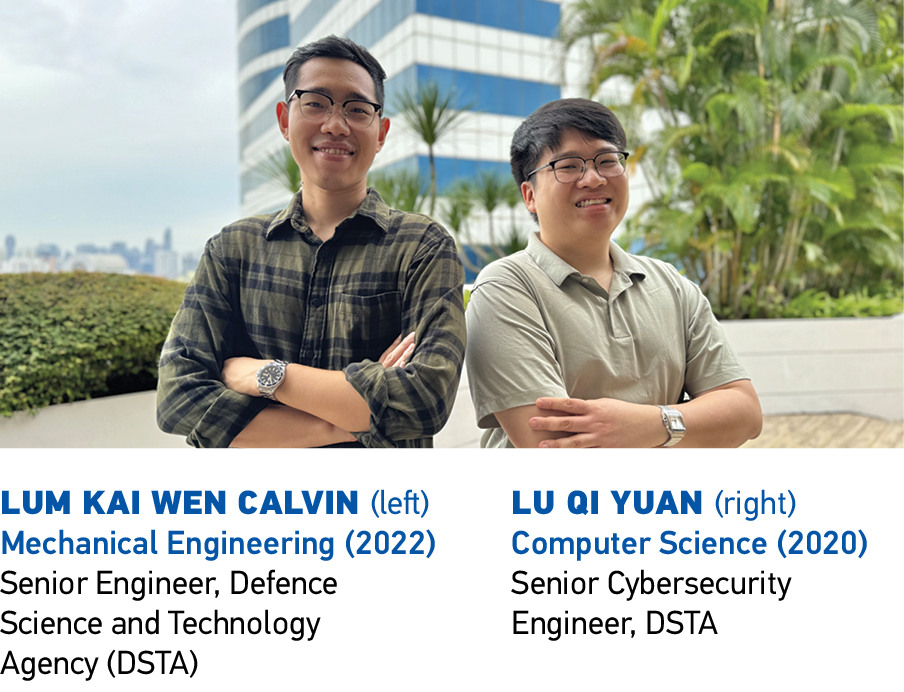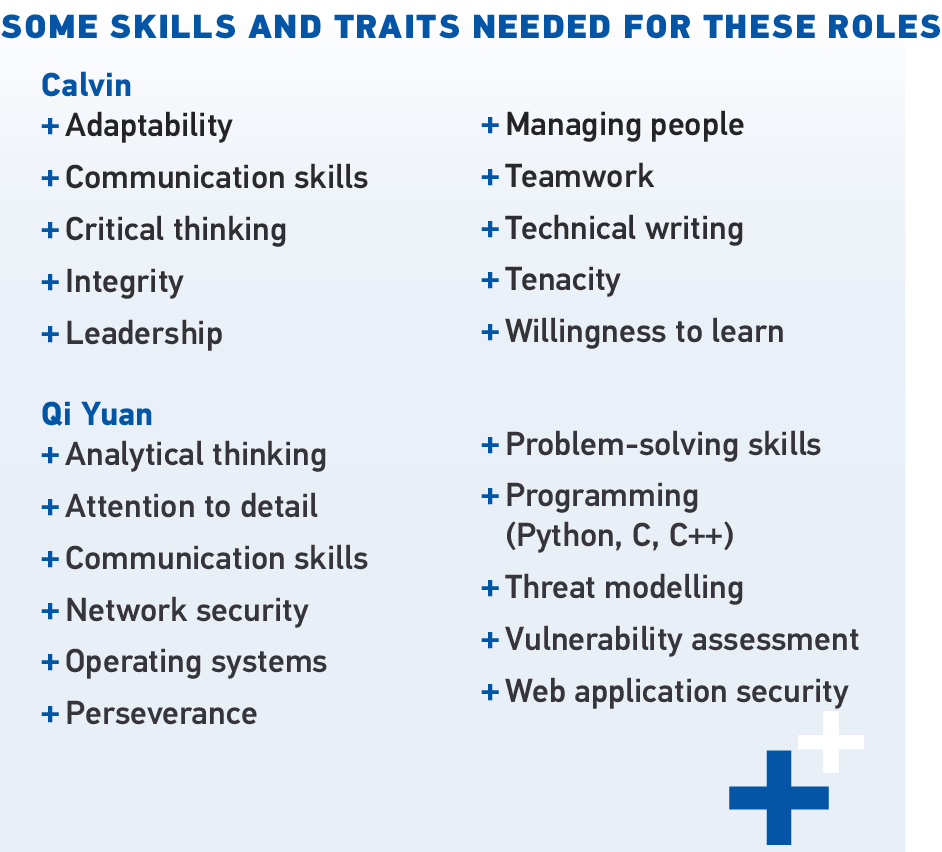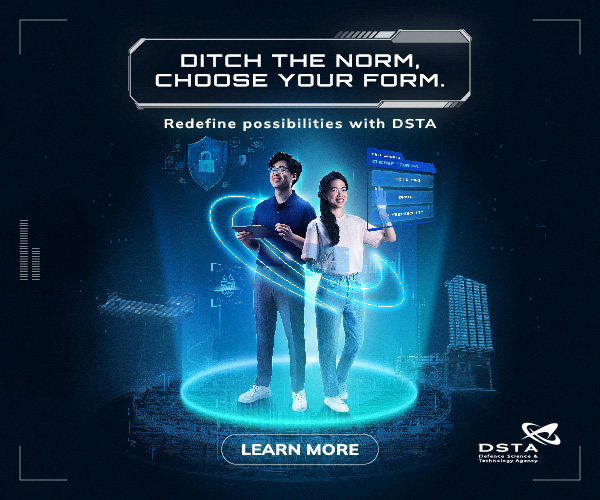

TELL US ABOUT YOUR ROLE AND MAIN RESPONSIBILITIES.
Calvin: As a Senior Engineer in the Land Systems Programme Centre at DSTA, I work on Army platforms such as the Leopard 2 Main Battle Tanks and Artillery systems. My team and I continuously explore next-generation technologies to enhance the Singapore Army’s capabilities.
Qi Yuan: Being a Senior Cybersecurity Engineer at DSTA, I identify weak points in systems that could be exploited by hackers. I test these systems to find flaws so that we can fix them before hackers can exploit these vulnerabilities. I also continually explore emerging technologies to stay current with changes in the tech landscape, ensuring the systems we develop are updated and secure.
WHAT MADE YOU PURSUE A CAREER IN THIS SECTOR?
Calvin: Math and Science were subjects that I gravitated towards, leading me to pursue engineering. While serving National Service, I had positive experiences operating the radar as well as command and control systems as an Artillery officer, sparking my interest in defence technology. During my studies at NTU, I chanced upon DSTA at a career fair and that gave me the final push towards pursuing a career which I found exciting and meaningful.
Qi Yuan: My interest in cybersecurity began when I discovered a vulnerability in a card system I was using. The excitement I felt in the discovery process ignited my passion for breaking systems apart to see how they work. Joining DSTA allowed me to pursue that curiosity on a larger scale, where I could apply my skills to secure systems that impact real-world operations. The chance to make a meaningful contribution through my work is what ultimately drew me to this field.
WHAT DO YOU ENJOY MOST ABOUT THIS ROLE?
Calvin: I enjoy the thought-provoking discussions I have with people across the defence ecosystem — from experienced colleagues in DSTA to Army personnel and industry players. These stimulating conversations push me to think critically and expand my knowledge and learnings which I can apply to enhance my work experiences.
Qi Yuan: I enjoy the thrill of tackling complex challenges in cybersecurity. Each project presents an exciting opportunity to decipher intricate system vulnerabilities and devise innovative ways to secure them. The work at DSTA is dynamic, and I am constantly learning and adapting to new threats and technologies. Additionally, the collaborative culture enhances the fulfilment I get from my role, as it enables me to tap into the expertise of a diverse team.
WHAT WERE SOME WORK CHALLENGES YOU FACED AND HOW DID YOU OVERCOME THEM?
Calvin: One challenge I faced as a fresh engineer was understanding the complexities of systems integration. Extensive technical considerations are required when integrating next-generation systems with existing ones. I managed to overcome this by leveraging the expertise of experienced colleagues and engaging directly with system operators. Their hands-on experience, combined with my own initiative, helped me acquire deep systems engineering competencies.
Qi Yuan: Managing multiple projects with overlapping deadlines can be challenging. I learned that prioritising tasks and staying organised are essential, but what truly makes a difference is the strong support from my colleagues. Team members at DSTA are always ready to share insights or lend a hand. The continuous opportunities for learning and development here have also contributed to overcoming obstacles more effectively.
WHAT IS NEEDED TO BE SUCCESSFUL IN THIS ROLE?
Calvin: In addition to technical expertise, good soft skills and critical thinking are key. Being able to clearly articulate your ideas — whether verbally or in writing — is crucial for ensuring that decision-makers fully understand the key points you are presenting. Critical thinking is essential for problem-solving, as it helps you analyse situations and develop strategies to overcome challenges effectively.
Qi Yuan: To identify vulnerabilities, you need strong analyticalskills and keen attention to detail — even the smallest inconsistency can indicate a potential system vulnerability. It is also important to stay current and adaptable in the ever-changing threat landscape. Lastly, effective communication skills are essential for conveying the potential impact of threats clearly to stakeholders.
SHARE YOUR ADVICE WITH STUDENTS WHO ARE KEEN TO PURSUE A CAREER IN YOUR FIELD.
Calvin: To students interested in Singapore’s defence sector, don’t be intimidated by the complexity of the work that we do. Supervisors and mentors at DSTA are always willing to go the extra mile to guide and share their knowledge. It’s a deeply rewarding industry where we get to work on innovative technologies that contribute to Singapore.
Qi Yuan: My best advice for anyone pursuing a career in cybersecurity is to never stop learning. This field evolves rapidly — new threats and technologies are always emerging. At DSTA, we are constantly adapting to these shifts. Joining the defence tech industry provides exciting opportunities to work on complex, impactful projects, where staying curious and embracing change will help you thrive.








